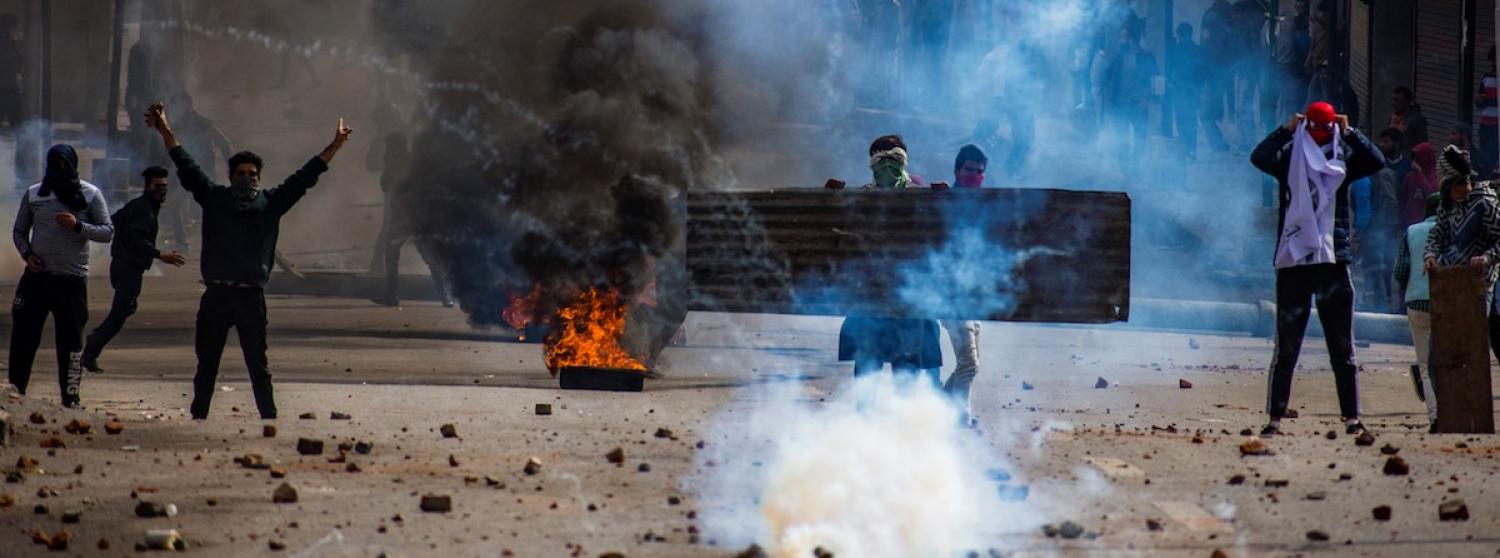The bitter legacy of the partition of the Indian subcontinent in 1947 continues to be an impediment to normal relations between Pakistan and India. Proper and meaningful diplomacy between Bangladesh and Pakistan remains elusive nearly 50 years after the war of 1971. India and Bangladesh remain unable to resolve some core issues that have defined their ties for a long time.
In short, at a time when diplomacy remains a brisk, intense affair elsewhere, despite some periodic hiccups caused by politicians or critical issues affecting the globe, South Asia remains in a straitjacket of inaction, with the three countries constituting the region unable to meet the demands of the 21st century.
The legacy of 1947 thus remains. The bloodletting of 1971 has not been forgotten. Diplomacy is moribund.
The cancellation of a proposed meeting of the foreign ministers of India and Pakistan on the sidelines of the United Nations General Assembly in New York last month put paid to any chances of the new government in Islamabad establishing contact with the Modi government in Delhi.
The Indians were incensed by what they called Pakistan’s involvement in a fresh incident of violence on the Indian side of Kashmir. The Pakistanis have described the Indian charges as false. In both countries, the media took up the issue in all frenzy and in clearly jingoistic terms.
This was one more instance of the hostility that has prevented the two countries – which have fought three wars and very nearly a fourth – from developing normal diplomatic relations. Of course, there have been intermittent moves, as observed through meetings of their leaders in the past, which produced certain degrees of optimism. And then it was all back to square one.
At the other end, Pakistan and Bangladesh remain embroiled in the bitterness generated by the Pakistan army’s crackdown on Bengalis in March 1971 in the aftermath of the general elections held in December 1970. Those elections gave a clear majority to the Awami League, the party led by the Bengali nationalist Sheikh Mujibur Rahman, with the Pakistan People’s Party headed by former foreign minister Zulfikar Ali Bhutto emerging as what ought to have been the opposition in the national assembly.
The military junta – which was in power and had organised the elections – and Bhutto repudiated the results. Over a period of nine months, the army perpetrated atrocities in East Pakistan, which eventually emerged as the independent republic of Bangladesh after engaging in guerrilla warfare against Pakistan with not a little help from the then-Indian government of Prime Minister Indira Gandhi.
For nearly half century, Bangladesh has demanded an apology from Pakistan over the atrocities committed by Pakistani soldiers in 1971. Pakistan has been reluctant to accede. Bangladesh and Pakistan established diplomatic relations in 1976, but that has not put an end to old tensions.

Dhaka has repeatedly accused Islamabad of interfering in its internal politics and has in recent times made it clear that Pakistan’s high commission (embassy) in Bangladesh remains a hub of activity on the part of the notorious Inter-Services Intelligence (ISI). Pakistan did not help its case when a few years ago the Nawaz Sharif government adopted a resolution in the national assembly condemning the trials of local Bangladeshi right wing politicians accused of committing war crimes in collaboration with the Pakistan army in 1971.
Bangladesh’s Prime Minister Sheikh Hasina, who leads the Awami League, which under her father’s leadership led Bangladesh to freedom, has since adopted a firm position with regard to dealings with Pakistan. An example of it has been the Bangladeshi government’s refusal to agree to the appointment of Pakistan's new high commissioner in Dhaka. And reports have lately emerged of the Pakistani government mulling the expulsion of Bangladesh’s high commissioner in Pakistan as a retaliatory measure.
Relations between India and Bangladesh have generally been a friendly affair and yet there have been some serious stumbling blocks to the smooth progression of political links between the two countries. Dhaka and Delhi signed a treaty on a sharing of the waters of the river Ganges in late 1996 (India and Bangladesh share 54 rivers). A land boundary agreement ratified by Bangladesh in 1974 took four decades to be ratified by the Indian government.
Delhi and Dhaka have cooperated in combating terrorism and promoting economic and cultural links between them, but a major problem in the form of a stalemate over the waters of another river, the Teesta, persists. When Modi took office in 2014, he had promised that a deal on the Teesta would be arrived at within the terms in office of his BJP government and Sheikh Hasina’s Awami League-led government in Bangladesh. With Dhaka poised for new elections later this year and with Delhi preparing for a new vote by May next year, the promised Teesta deal now looks far-fetched.

Huge optimism was generated in 1985 when seven nations in South Asia (Afghanistan later came in as the eighth member of the group) came together to cobble the South Asian Association for Regional Cooperation (SAARC) as a cooperative endeavour in the region. Over the years, though, SAARC has fallen into disuse. The last summit, scheduled to be held in the Pakistani capital of Islamabad in November 2016, was scuttled when the Indian government refused to take part over its worries of Pakistan’s involvement in terrorist acts against India. Bangladesh too declined to attend the summit, citing Islamabad’s interference in its internal affairs as the reason.
The legacy of 1947 thus remains. The bloodletting of 1971 has not been forgotten. Diplomacy, in consequence, is moribund.

